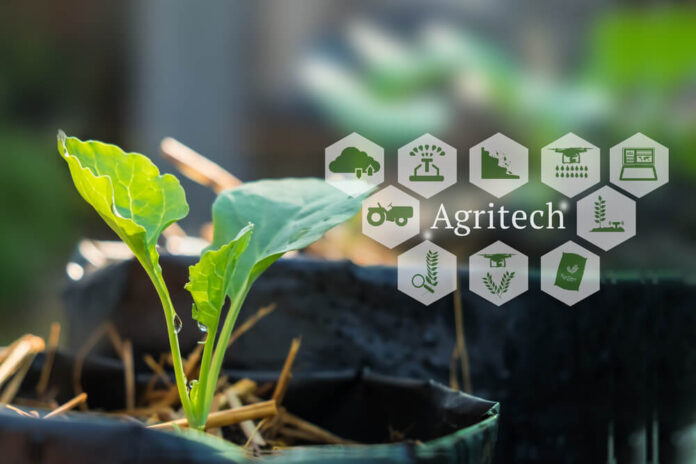Top 10 Best AgriTech Companies in India 2023
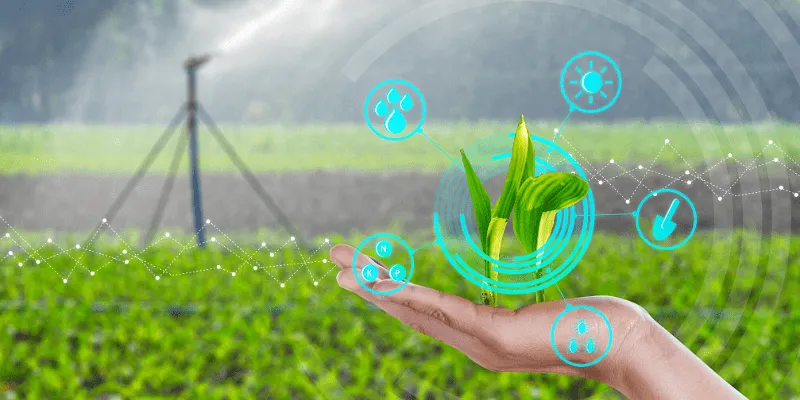
AgriTech companies, also known as Agricultural Technology companies, leverage technology to innovate and improve various aspects of the agriculture industry. These innovations often aim to enhance productivity, sustainability, and efficiency in farming practices.
The scope of AgriTech is broad, including areas like:
Precision Agriculture: These companies develop technologies such as GPS, IoT (Internet of Things) devices, sensors, robotics, and drones to enhance farming practices. They help in soil analysis, crop monitoring, and predictive analytics for weather and crop yields.
Biotechnology: Companies in this category focus on genetic modification and sequencing of plants to improve their resistance to diseases and pests, nutritional value, and growth rates.
Vertical and Indoor Farming: Companies in this sector utilize controlled environments to grow crops. This includes vertical farms in urban settings, greenhouses, and hydroponics/aeroponics systems.
Supply Chain and Farm Management: These companies provide software solutions for supply chain management, ensuring seamless transfer of products from farms to consumers. They also provide farm management software that assists farmers with tasks like crop rotation, budgeting, and labor management.
AgriMarketplace: These companies provide digital platforms for farmers to sell their produce directly to consumers or businesses, thereby improving the accessibility of local and fresh produce.
AgriFintech: This category focuses on financial technology solutions for farmers, like platforms for crop insurance, lending, and other financial services tailored to agricultural needs.
FoodTech: While not strictly AgriTech, FoodTech intersects with it. These companies work on improving aspects of food production, storage, and delivery. This can include lab-grown meat or plant-based substitutes, waste reduction, and delivery service innovations.
Why AgriTech Companies are important

AgriTech companies play a critical role in addressing several key challenges facing our world today and in the future. Here are some reasons why these companies are important:
Feeding a Growing Population: The world’s population is projected to reach almost 10 billion by 2050. This increase will create significant demand for food. AgriTech companies can help increase agricultural productivity and efficiency, ensuring we can meet this growing need for food.
Sustainable Farming Practices: Traditional farming methods can be harmful to the environment, contributing to deforestation, water pollution, soil degradation, and loss of biodiversity. AgriTech companies are creating technologies that help farmers use resources more efficiently, reduce waste, and limit their impact on the environment.
Climate Change Resilience: Agriculture is vulnerable to climate change, with extreme weather events, changing precipitation patterns, and rising temperatures all posing risks to crop production. AgriTech can provide solutions to help farmers adapt and become more resilient to these changes.
Reducing Food Waste: A significant portion of food is lost or wasted between the farm and the consumer. Technology can help reduce this waste by improving supply chain efficiency, extending shelf-life, and optimizing distribution.
Improving Nutrition: AgriTech, particularly in the realm of biotechnology, can help improve the nutritional content of food. This could help address malnutrition and health issues related to poor diet.
Economic Growth and Development: The agricultural sector is a major source of employment and economic activity, especially in developing countries. AgriTech can help increase profitability and sustainability in the sector, promoting economic growth and reducing poverty.
Digital Transformation: Like in many other sectors, digital transformation in agriculture – also referred to as ‘smart farming’ – is enabling better decision-making through data. Sensors, drones, artificial intelligence (AI), and blockchain are some of the technologies being used to collect, analyze, and use data in new and powerful ways.
History of AgriTech Companies in India
India has a deep historical connection with agriculture, given that it is predominantly an agrarian economy. The advent of AgriTech in India can be traced back to the Green Revolution in the 1960s and 1970s when high-yield variety seeds and modern agricultural methods were introduced.
The inception of AgriTech companies in India, however, is a relatively recent phenomenon that has largely gained momentum in the 21st century. The Indian government has played a significant role in promoting AgriTech through various initiatives.
2000s: The initial wave of AgriTech in India was primarily about establishing internet connectivity and basic digital infrastructure in rural areas. Companies like ITC e-Choupal started setting up internet kiosks in villages, which allowed farmers to access market prices and other agricultural information.
2010s: With the increase in smartphone penetration and improved internet connectivity, many AgriTech startups began to emerge. Companies like AgroStar, CropIn, and FarmLink started providing a range of solutions, from digital advisory services to supply chain improvements.
Digital Green: It is a non-profit organization that started in 2006 as a part of Microsoft Research in India. It uses digital tools to disseminate targeted agricultural information to small-scale farmers.
AgriTech Startup Ecosystem: From 2016 onwards, the AgriTech startup ecosystem in India saw significant growth. A report by NASSCOM in 2019 mentioned that India was home to more than 450 AgriTech startups, growing at a rate of 25% annually.
Government Initiatives: The Indian government launched various initiatives like the eNAM (National Agriculture Market) in 2016, a pan-India electronic trading portal that aimed to connect farmers with buyers across the country. Another key initiative is the AgriStack, a proposed digital architecture for the agricultural sector.
COVID-19 Impact: The COVID-19 pandemic has further emphasized the importance of AgriTech, as traditional agricultural practices were disrupted due to lockdowns and restrictions. It led to an increased adoption of digital platforms for selling produce, accessing farm supplies, and obtaining agricultural advice.
Benefits of AgriTech Companies
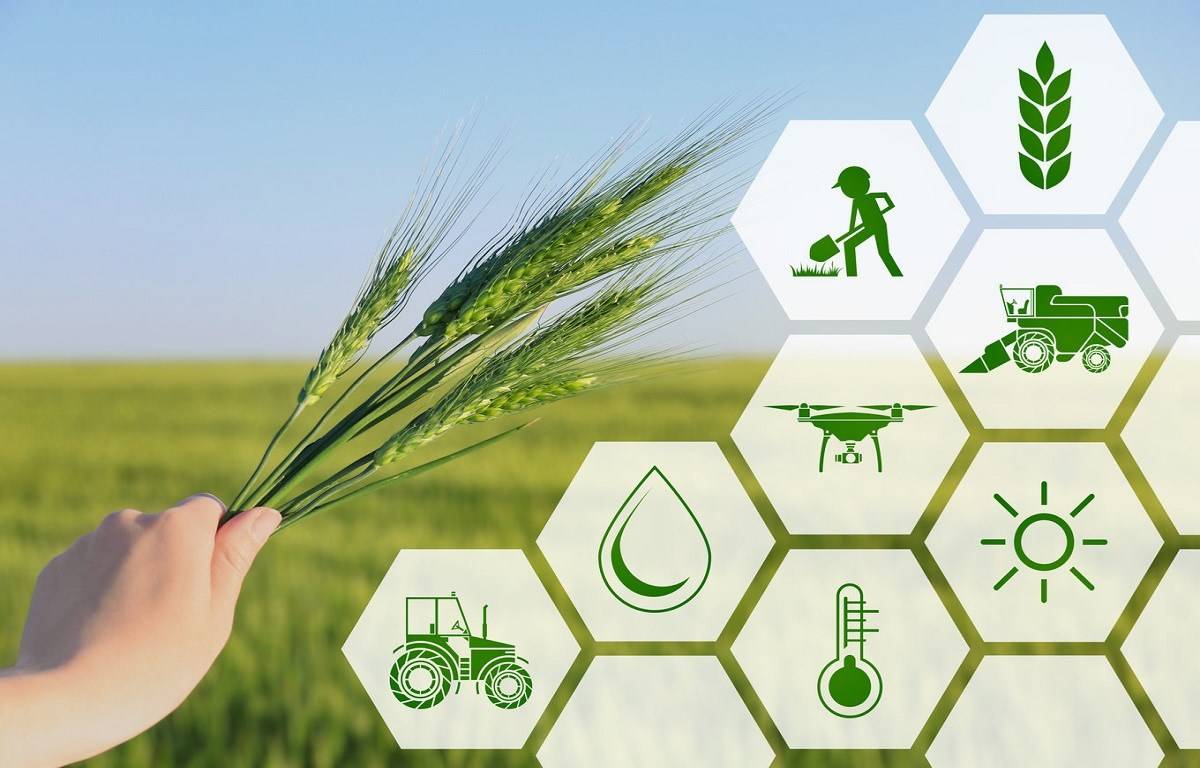
AgriTech companies bring numerous benefits to the agricultural sector, economies, and society at large. Here are some of the key benefits:
Increased Productivity: AgriTech solutions often aim to increase agricultural productivity, whether through precision farming techniques, advanced analytics for decision-making, or automated solutions for tasks that were traditionally labor-intensive.
Improved Sustainability: Many AgriTech innovations focus on making farming more sustainable by reducing resource consumption (like water and fertilizer), reducing the carbon footprint, and improving soil health.
Food Security: By helping increase productivity and resilience in the face of environmental changes, AgriTech can play a key role in ensuring food security for a growing global population.
Reduced Food Waste: AgriTech solutions that streamline the agricultural supply chain can greatly reduce food waste, a significant issue globally. By ensuring food gets from farms to consumers more efficiently, these technologies can reduce the amount of food that spoils during transport or storage.
Greater Financial Inclusion: Many AgriTech companies also work in the realm of AgriFintech, providing financial services to farmers. This can include insurance products, lending platforms, and tools for better financial planning and risk management.
Improved Market Access: Online platforms can connect farmers directly to consumers or larger markets, helping them get better prices for their produce and reducing reliance on middlemen.
Job Creation: The AgriTech sector also creates new types of jobs, both within the industry itself and in ancillary services. These can include roles in data analysis, software development, drone operation, equipment maintenance, and more.
Quality Improvement: By leveraging technologies like sensors and IoT devices, farmers can better monitor and manage the quality of their produce. This can lead to higher-quality food reaching consumers.
Enhanced Knowledge and Skills: AgriTech often involves providing education and resources for farmers, helping them to improve their farming practices and make more informed decisions.
Resilience to Climate Change: As weather patterns become increasingly unpredictable due to climate change, AgriTech can help farmers adapt and become more resilient. This might involve technologies for better forecasting and monitoring weather conditions or developing crops that are more tolerant to drought, flooding, or high temperatures.
Best AgriTech Companies
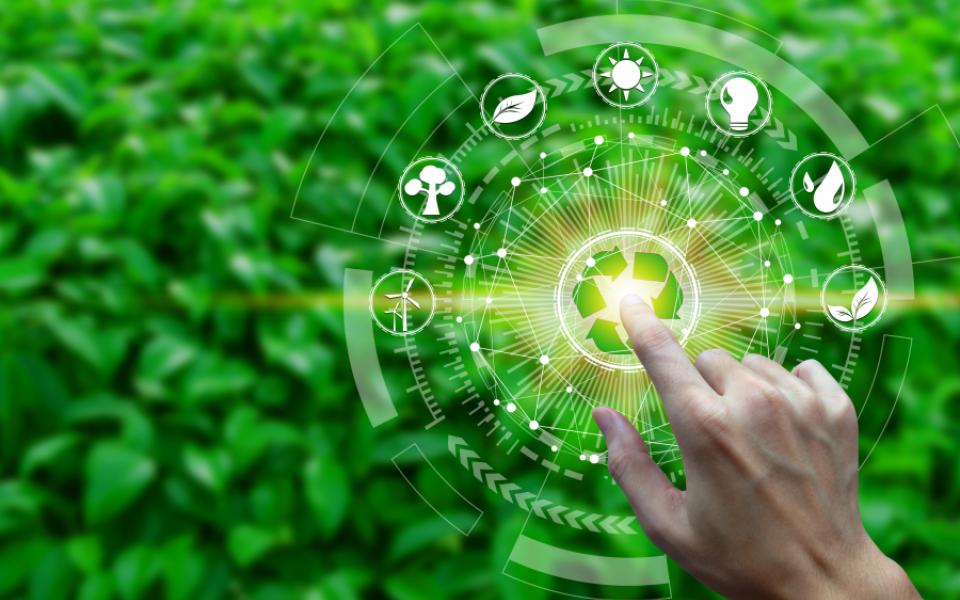
Indigo Agriculture
The Climate Corporation
Plenty
AeroFarms
Blue River Technology
Granular:
Farmers Business Network (FBN)
Bowery Farming
AgroStar
CropIn
Indigo Agriculture

Indigo Agriculture is a notable AgriTech company headquartered in Boston, Massachusetts, United States. The company leverages natural microbiology and digital technologies with the aim of improving grower profitability, environmental sustainability, and consumer health.
Here are some key aspects of Indigo Agriculture:
Microbial Seed Treatments: One of the company’s core technologies involves treating seeds with beneficial microbes to improve plant health and resilience. This can increase crop yields and resistance to stress, such as from drought. This technology relies on the idea that microbes living symbiotically with plants can confer significant benefits akin to the microbiome in the human gut.
Digital Agronomy Tools: Indigo has developed a suite of digital tools that utilize data science to improve farming practices. These tools provide insights on planting, managing crops, and marketing yields, aiming to maximize profitability.
Indigo Marketplace: This digital platform connects farmers directly with buyers, which can help farmers get a better price for their produce by reducing reliance on middlemen.
Indigo Carbon: Launched in 2019, this initiative aims to fight climate change by paying farmers to use practices that sequester carbon in their soils. This can also improve soil health, which is beneficial for crops.
Transportation and Storage Services: Indigo also provides logistical services for transporting and storing crops, helping farmers to get their produce to market efficiently.
The Climate Corporation

The Climate Corporation, a subsidiary of Bayer, is a San Francisco-based digital agriculture company that uses data science, machine learning, and advanced modeling to help farmers improve productivity and make better decisions.
Here are some key aspects of The Climate Corporation:
Climate FieldView™: This is The Climate Corporation’s main product. It’s a comprehensive digital platform that allows farmers to consolidate data from different sources, analyze it, and make more informed decisions. It offers capabilities like satellite imagery, weather monitoring, field data collection, and yield prediction.
Data Science: The Climate Corporation employs data scientists who work on developing algorithms to interpret the vast amount of data generated in agriculture. These insights can guide farmers on when to plant, what seed to use, how to optimize inputs and predict how much they will harvest.
Weather Modeling: The Climate Corporation uses proprietary weather models to provide highly localized and accurate weather predictions. This is crucial as weather significantly impacts crop health and yield.
Digital Collaboration: The platform also facilitates collaboration between farmers and their advisors, allowing for shared decision-making based on the same set of real-time data.
Integration with Machinery: Climate FieldView™ can be integrated with many types of farm equipment, enabling real-time, field-level data collection.
Plenty

Plenty is an AgriTech company based in South San Francisco, California, USA. The company focuses on indoor vertical farming and aims to bring fresh, pesticide-free produce to cities around the world.
Here’s some more information about Plenty:
Vertical Farming: Plenty’s primary technology is their vertical farming system, which grows plants on tall, upright structures inside a controlled environment. This approach uses a fraction of the water and land compared to traditional farming and allows them to grow crops year-round.
Controlled Environment Agriculture: The indoor farms use a variety of technologies to control the growing environment precisely. These technologies allow Plenty to control factors such as light, temperature, and humidity, which can lead to faster plant growth and higher yields.
No Pesticides or GMOs: Plenty’s growing methods don’t require pesticides, and they only use non-GMO seeds. This aligns with a growing consumer preference for natural, pesticide-free produce.
Machine Learning and AI: Plenty leverages machine learning and AI to continuously optimize their farming practices. Their technology learns from each harvest to improve the taste, texture, and yield of the crops.
Local Production: By establishing farms in urban areas, Plenty aims to reduce the distance that food needs to travel to reach consumers. This can lead to fresher produce and lower transportation emissions.
Wide Variety of Crops: Plenty claims to be able to grow hundreds of different crops in their vertical farms, including many that wouldn’t usually be feasible in certain climates or seasons.
AeroFarms
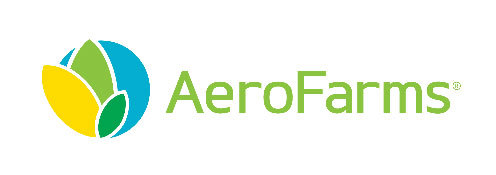
AeroFarms is a pioneering AgriTech company specializing in vertical farming. Founded in 2004, the company is based in Newark, New Jersey, United States. AeroFarms utilizes proprietary aeroponic technology to grow leafy greens in stacked layers within a controlled indoor environment. Here’s some more information about AeroFarms:
Aeroponic Technology: Instead of using soil or hydroponics, AeroFarms grows plants in a mist environment that provides them with the necessary water and nutrients. This method uses significantly less water than traditional farming and allows for precise control over the plants’ growth.
Controlled Environment Agriculture (CEA): AeroFarms’ indoor vertical farms are entirely controlled environments. They can adjust factors like light, temperature, and humidity to optimize plant growth. This allows them to grow crops year-round, regardless of weather conditions outside.
Vertical Farming: By growing plants in stacked layers, AeroFarms can produce more crops per square foot than traditional farms. This makes their technology suitable for urban environments, where space is often limited.
Data-Driven Agriculture: AeroFarms uses advanced analytics, machine learning, and AI to collect and analyze data from their farms. This helps them continuously improve their growing methods and increase yields.
Sustainability: AeroFarms claims that their technology uses 95% less water than traditional field farming and 99% less than hydroponics. They also avoid the use of pesticides and herbicides, and their indoor farms reduce the need for transportation, leading to lower carbon emissions.
Nutrient-Dense Produce: The company focuses on growing leafy greens and herbs, which are nutrient-dense and often don’t have a long shelf-life. Growing these crops locally in urban environments means fresher produce for consumers.
Blue River Technology

Blue River Technology is an innovative AgriTech company that became a part of John Deere in 2017. The company is known for developing advanced machine learning, robotics, and computer vision solutions for agriculture. Its headquarters are in Sunnyvale, California, United States.
Here’s some more information about Blue River Technology:
See & Spray Technology: Blue River Technology’s flagship product is the See & Spray machine, which uses computer vision and AI to identify and selectively spray individual plants. This technology enables the precise application of herbicides to weeds while leaving the crops unaffected, reducing herbicide use and promoting more sustainable farming practices.
Machine Learning and AI: Blue River’s technologies leverage machine learning to learn the difference between crops and weeds, which allows their machines to make real-time decisions in the field.
Robotics: The company integrates advanced robotics into its solutions. These robotic systems can accurately target and spray individual weeds at high speed.
Integration with John Deere: Since being acquired by John Deere, Blue River’s technology has been integrated with John Deere’s machinery. This integration benefits from John Deere’s extensive experience and market reach in the agricultural machinery sector.
Enhancing Crop Yields: By precisely targeting weeds and reducing competition for resources, Blue River’s technology can help enhance crop yields. It can also minimize crop damage from herbicides.
Granular
Granular is a leading farm management software company that provides cloud-based tools to help farmers run more profitable businesses. The company is headquartered in San Francisco, California, and was acquired by Corteva Agriscience, the agricultural division of DowDuPont, in 2017.
Here are some key aspects of Granular:
Farm Management Software (FMS): Granular’s FMS is a comprehensive suite of tools that covers various aspects of farm management. It enables farmers to plan, monitor, and analyze their operations for better decision-making.
Financial Tools: Granular provides tools for tracking farm finances in real-time, including costs, revenues, and profitability by field, crop, and other factors. This helps farmers manage their cash flow and make better financial decisions.
Crop Planning and Inventory Management: Granular’s software allows farmers to plan their crop rotations, manage seed and chemical inventory, and track harvest data.
Land and Rent Management: Granular offers tools for managing land contracts and tracking rent payments. This can be particularly useful for larger operations with multiple landowners or rented fields.
Data Integration: Granular’s platform can integrate data from various sources, including machinery, field sensors, and other software systems. This helps create a comprehensive view of farm operations.
Sustainability: Granular also provides tools for tracking and reporting on sustainability metrics, which can help farmers demonstrate their environmental stewardship and access sustainability-focused markets or funding.
Granular Insights: This is a free tool offered by Granular that uses satellite imagery to help farmers monitor their fields, track crop progress, and identify potential issues early.
Farmers Business Network (FBN)
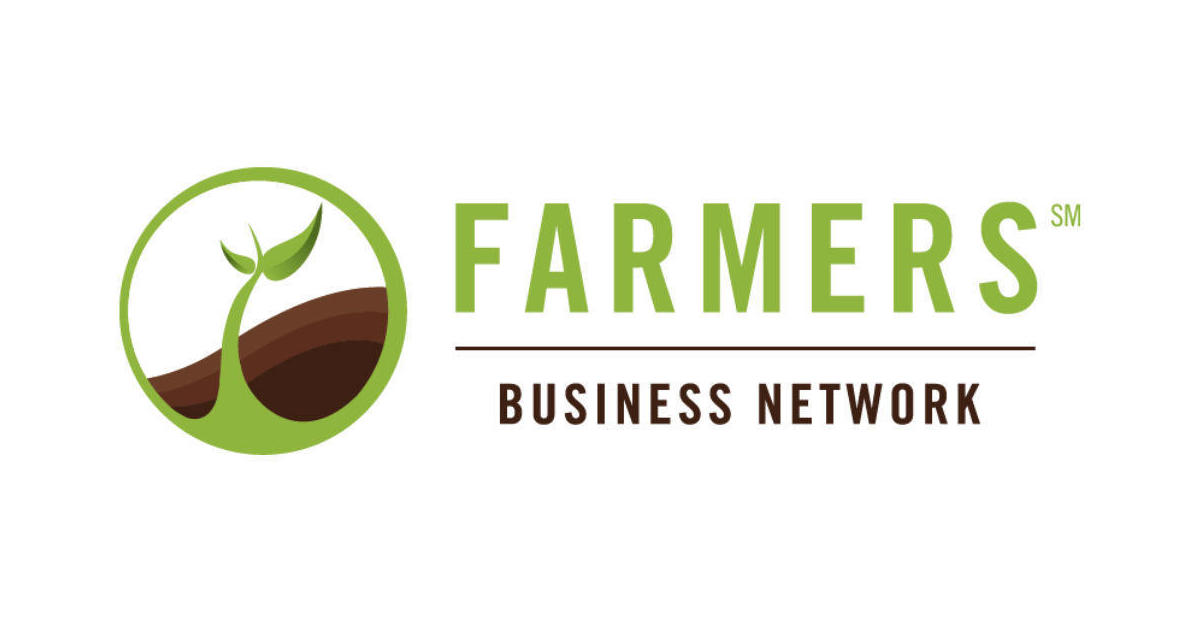
Farmers Business Network (FBN) is an independent and unbiased network of farmers that spans across the U.S., Canada, and Australia. FBN utilizes data science and machine learning to provide members with insights about their farms and to help them make more informed decisions. The network was founded in 2014 and is headquartered in San Carlos, California, USA.
Here are some key aspects of the Farmers Business Network:
Data Analysis: FBN collects and analyzes agronomic and financial data from participating farms. The aggregated and anonymized data is then shared with members, providing insights on seed performance, chemical use, yield data, and more. This helps farmers make more informed decisions on what to plant when to plant, and how to manage their crops.
FBN Direct: This is an online store where members can purchase agricultural inputs, often at significantly lower prices than traditional retail. The platform aggregates demand from its members, which can help negotiate better prices from suppliers.
FBN Health: A health insurance service tailored specifically for farmers and rural communities, aiming to provide affordable and comprehensive health care options.
FBN Crop Marketing: FBN offers various services to help farmers market their crops, such as grain marketing advisory, futures and options brokerage, and a platform for selling grain directly to buyers.
FBN Finance: This service offers competitive financing options for agricultural inputs purchased through FBN Direct.
Community: Perhaps the most crucial aspect of FBN is the network of farmers itself. The community allows farmers to connect with each other, share experiences, and learn from each other.
Bowery Farming
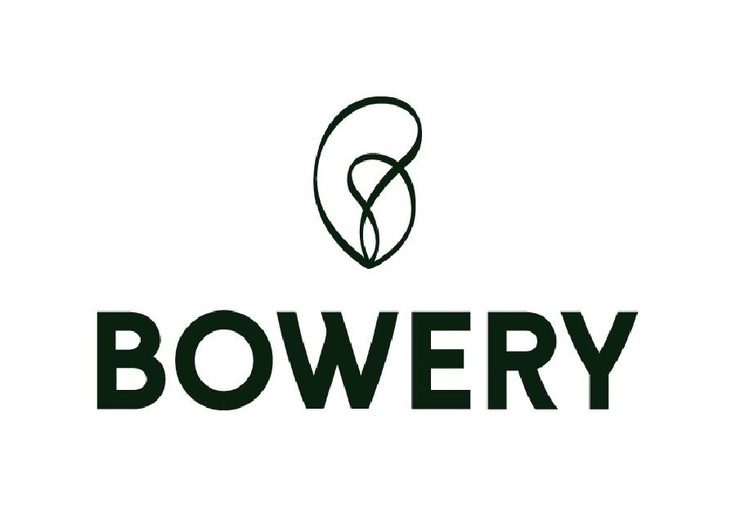
Bowery Farming is an indoor farming company that uses high-tech approaches to grow crops in urban environments. Founded in 2015, Bowery Farming is based in New York, NY, USA, and is one of the leading companies in the field of vertical farming.
Here are some key aspects of Bowery Farming:
Vertical Farming: Bowery uses vertical farming techniques to grow plants in stacked layers within a controlled indoor environment. This approach allows the company to produce crops year-round, regardless of outdoor weather conditions.
Controlled Environment Agriculture: Inside their farms, Bowery uses proprietary technology to control variables like light, temperature, and humidity. This precision farming allows for the optimization of plant health and growth, leading to higher yields than traditional farming methods.
BoweryOS: Bowery has developed a proprietary operating system, BoweryOS, which utilizes machine learning, computer vision, and automation to monitor plants and adjust environmental conditions. The system continually learns and improves, optimizing the growth of each plant.
Sustainability: Bowery’s approach uses 95% less water than traditional agriculture and completely eliminates the need for pesticides and fungicides. Their indoor farms also reduce the need for transportation, leading to lower carbon emissions.
Locally Grown: By locating their farms in urban areas, Bowery can deliver fresher produce to consumers. Their produce is usually available in stores within a few days of being harvested.
Crop Variety: Bowery grows a variety of leafy greens and herbs, including lettuce, kale, arugula, and basil. They have the potential to expand into a wider variety of crops in the future.
AgroStar

AgroStar is a technology-driven AgriTech company based in India that provides a range of solutions and services to improve the life of farmers. Founded in 2013 and headquartered in Pune, Maharashtra, AgroStar aims to transform Agri-business for farmers in rural India with innovative and tech-based solutions.
Here are some key aspects of AgroStar:
Digital Platform: AgroStar has a mobile app and a toll-free helpline where farmers can get real-time solutions to their farming problems. They can also get agronomy advice from experts and order farming products directly from the app.
Agronomy Advice: AgroStar employs a team of agronomists who provide expert advice to farmers. This can include recommendations on which crops to grow, when to plant, how to manage pests and diseases, and more.
E-commerce for Agri-Inputs: Through AgroStar’s platform, farmers can purchase a variety of agricultural inputs such as seeds, fertilizers, pesticides, and equipment. The products are delivered directly to the farmers, eliminating the need for middlemen and reducing costs.
Data-Driven Insights: AgroStar collects and analyzes data from farmers to provide personalized recommendations. This can include crop suggestions based on the farmer’s region and past purchases or predictive alerts for potential pest and disease outbreaks.
Financing Solutions: AgroStar partners with financial institutions to provide farmers with access to credit. This can help farmers purchase the inputs they need to maximize their yields.
Community and Content: The platform also provides a space for farmers to connect with each other and share their experiences. AgroStar also curates and shares educational content to help farmers improve their practices.
CropIn

CropIn is an Indian AgriTech company based in Bangalore. Founded in 2010, CropIn uses artificial intelligence, machine learning, big data, and remote sensing to increase the efficiency, profitability, and sustainability of agriculture.
Here are some key aspects of CropIn:
SmartFarm: This is a farm management solution that helps enterprises plan, monitor, and analyze their agricultural operations. It enables real-time tracking of activities and provides alerts on potential risks.
SmartRisk: CropIn’s SmartRisk platform leverages artificial intelligence and machine learning to provide agri-businesses with predictive analytics, helping them mitigate risks and increase crop productivity. It can provide insights on crop health, pest prediction, yield prediction, and weather analytics.
AcreSquare: This is a farmer-centric app where farmers can receive personalized advice, weather forecasts, and market updates.
warehouse: This product is aimed at quality control for post-harvest management. It helps agribusinesses monitor and maintain quality parameters in storage and during transport.
Sustainability and Traceability: CropIn’s platforms can also be used to track and demonstrate sustainability in agricultural supply chains. Businesses can track the origin of a crop and monitor compliance with sustainable farming practices.
Global Reach: CropIn has reached millions of farmers across dozens of countries worldwide, making it a global player in the AgriTech space.
































